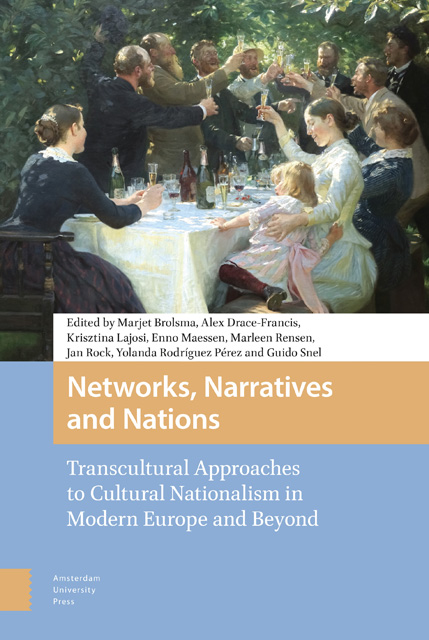 Networks, Narratives and Nations
Networks, Narratives and Nations Book contents
18 - The Extension of Traditions: King Stephen I of Hungary and the Politics of Cultural Nationalism
Published online by Cambridge University Press: 16 November 2022
Summary
Abstract
The case of King Stephen provides a useful basis for rethinking the relationship between political and cultural nationalism, focusing on competing ideas of nationhood promoted by communities with different traditions. These traditions are often extended by adding innovative components or expanding their range of meaning to adapt to new sociopolitical contexts. Modern national narratives can thus be understood not only in terms of the invention of traditions but also of their extension.
Keywords Hungary; King Stephen I of Hungary; cultural nationalism; canon; extension of traditions
Historical Memory and Cultural Nationalism
The coronation in the year 1000 AD ce of King Stephen I of Hungary, also known as King Saint Stephen (Szent István király in Hungarian), is often interpreted as the founding act of the Hungarian state. But could he unite the nation? One would expect such a founding father to have become a national symbol in the time of the nineteenth-century nation-building movement. However, although King Stephen has been an official saint since 1083, he was not a popular one in the heyday of nineteenth-century nationalism. He has remained a controversial figure, celebrated by some and rejected by others. While some see him as a great Christian monarch whose state has survived for more than a thousand years, many Hungarian far-right sympathizers regard him more as a villain than a hero, and as an astute statesman who betrayed the ancient Hungarian religion and mistreated his kinfolk in order to establish a Christian state. He may have founded a kingdom, but his legacy continues to divide the community (Fig. 18.1).
An examination of the historical memory and stage adaptations of King Stephen's life can serve to contribute to the theoretical debate concerning the dichotomy of cultural and political nationalism. Cultural nationalism is often understood in opposition to political nationalism, but I will argue that there is no significant demarcation between these two spheres. Here I draw attention to some actual examples of their interaction, with the aim of contributing to a more dynamic and nuanced understanding of the phenomenon of nationalism in its historical context.
Drawing on the theories of John Hutchinson and Joep Leerssen, I examine the ways in which cultural nationalism was entangled with competing national narratives.
- Type
- Chapter
- Information
- Networks, Narratives and NationsTranscultural Approaches to Cultural Nationalism in Modern Europe and Beyond, pp. 223 - 242Publisher: Amsterdam University PressPrint publication year: 2022
